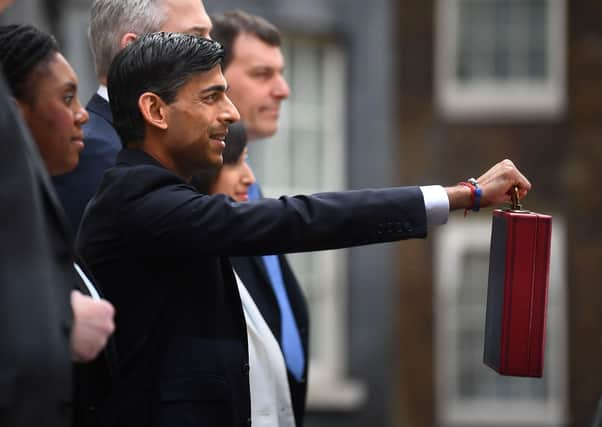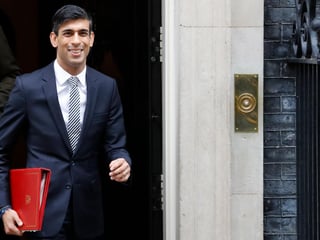SNP must play straight on UK Budget bonanza – Brian Wilson


Rishi Sunak’s Budget was delivered with a panache which suggested the last decade never happened.
This was “a new government”. Austerity was cast out. Public investment is no longer an irresponsible vice but the essential enabler of economic growth.
Advertisement
Hide AdAdvertisement
Hide AdDebt – which will exceed in real terms the 2010 levels hitherto so excoriated – has again become the obvious means of stimulating the economy. Over £3 trillion, if that means anything to anyone, by 2022.
Even the delivery was a throwback to happier times. Spending commitments were distributed like confetti, wildly cheered by MPs who nodded gravely in support of George Osborne’s hair shirt and Ian Duncan Smith’s welfare cruelty.
Most Budgets are lauded on the day and lose their shine under closer inspection. This one has withstood that initial challenge. Mr Sunak promised lots more money for useful things and in these troubled times that seems like good news to be taken at face value.
The essence of Jeremy Corbyn’s response was true, if badly delivered. Austerity was always far more a political choice than an economic necessity. It was perfect cover for a right-wing government to do nasty things they wanted to do anyway.
Much of that dark legacy remains undisturbed. There was nothing to address even the harshest outcomes from Universal Credit. Nothing to take the homeless off London’s streets any more than Glasgow’s. Nothing to redistribute a scintilla of wealth.
However, the trick of changing leaders and proclaiming “a new government” is tried and tested. This Budget will prolong the honeymoon.
As far as Scotland is concerned, the ball is now in St Andrew’s House. However Scottish ministers try to disguise it, the Tories have provided very substantial additional money to play with. We are entitled to know how it will be spent.
In other words, what will happen to Barnett consequentials – £640 million on top of a £1.3 billion increase from the 2020-21 spending round. This is not a new question but one which arises in stark form because of the sums involved.
Advertisement
Hide AdAdvertisement
Hide AdThe devolution settlement allows the Scottish Government to spend the extra money on anything it wants. I tend to the view that this is an excessive freedom since there are some priorities covering devolved powers which should be common to the whole UK.
Just as in the relationship between central and local government, there is much to be said for a sensible degree of ring fencing. I hold out no hopes for such an adjustment but the least that should be expected is transparency.
As has been clear from the evasions of recent days, transparency is the last thing the Scottish Government intends to deliver. The usual strategy is to wait until awareness has subsided and then go for headline-grabbing announcements with no acknowledgement of how the money was generated.
That might not be so easy this time. The business community is certainly onto the fact that the Budget creates “very significant Barnett consequential revenues to support businesses facing an extremely difficult few months”, in the words of David Lonsdale, director of the Scottish Retail Consortium.
While there have been generalised assurances that business support money will be passed on, the quick and sensible action would be to say: “Thanks and snap – we’ll do the same things here.” The longer the delay, the greater the prospects for obfuscation and diversion.
To take another simple example, Mr Sunak announced in the coronavirus context “a £500 million hardship fund, distributed to local authorities, which will be able to use that fund to directly support vulnerable people in their local area”. Will the same approach – ie via local authorities – be adopted in Scotland?
Perhaps there is an opportunity to set a precedent. Few of us are interested in the endless mysteries of public finance. But we can all understand a straightforward table showing what UK Government expenditure generates Barnett Consequentials and how these are spent in Scotland.
That is not going to happen under the current regime but it would not be a bad manifesto commitment from other, less begrudging parties.
Comments
Want to join the conversation? Please or to comment on this article.
